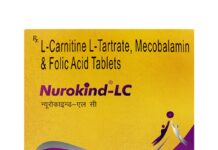 WASHINGTON: Consumption of black and green teas, coffee and liquid smoke flavoring can activate the highest levels of a gene associated with cancer, scientists, including Indian-origin researchers, have warned.
WASHINGTON: Consumption of black and green teas, coffee and liquid smoke flavoring can activate the highest levels of a gene associated with cancer, scientists, including Indian-origin researchers, have warned.
Scientists at the Johns Hopkins Kimmel Cancer Center tested the potentially harmful effect of foods and flavorings on the DNA of cells.
They found that liquid smoke flavoring, black and green teas and coffee activated cancer-linked gene called p53.
Liquid smoke, produced from the distilled condensation of natural smoke, is often used to add smoky flavor to sausages, other meats and vegan meat substitutes.
The p53 gene becomes activated when DNA is damaged. Its gene product makes repair proteins that mend DNA. The higher the level of DNA damage, the more p53 becomes activated.
“We don’t know much about the foods we eat and how they affect cells in our bodies,” said Scott Kern, the Kovler Professor of Oncology and Pathology at the Johns Hopkins University School of Medicine.
“But it’s clear that plants contain many compounds that are meant to deter humans and animals from eating them, like cellulose in stems and bitter-tasting tannins in leaves and beans we use to make teas and coffees, and their impact needs to be assessed,” Kern said.
Kern cautioned that the study does not suggest people should stop using tea, coffee or flavorings, but do emphasize the need for further research.
The team, including Samuel Gilbert, Kalpesh Patel, Soma Ghosh and Anil Bhunia from Johns Hopkins, mixed dilutions of the food products and flavorings with human cells and grew them in laboratory dishes for 18 hours.
Measuring and comparing p53 activity with baseline levels, the scientists found that liquid smoke flavoring, black and green teas and coffee showed up to nearly 30-fold increases in p53 activity, which was on par with their tests of p53 activity caused by a chemotherapy drug called etoposide.
Researcher Zulfiquer Hossain tracked down the chemicals responsible for the p53 activity. The strongest p53 activity was found in two chemicals: pyrogallol and gallic acid.
Pyrogallol, commonly found in smoked foods, is also found in cigarette smoke, hair dye, tea, coffee, bread crust, roasted malt and cocoa powder, according to Kern. Gallic acid, a variant of pyrogallol, is found in teas and coffees.
Kern said that more studies are needed to examine the type of DNA damage caused by pyrogallol and gallic acid, but there could be ways to remove the two chemicals from foods and flavorings.
“We found that Scotch whiskey, which has a smoky flavor and could be a substitute for liquid smoke, had minimal effect on p53 activity in our tests,” said Kern.
Other flavorings like fish and oyster sauces, tabasco and soy sauces, and black bean sauces showed minimal p53 effects in Kern’s tests, as did soybean paste, kim chee, wasabi powder, hickory smoke powders and smoked paprika.. -PTI






